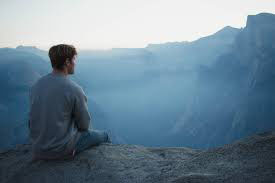
“I see a beautiful city and a brilliant people rising from this abyss. I see the lives for which I lay down my life, peaceful, useful, prosperous and happy… I see that I hold a sanctuary in their hearts, and in the hearts of their descendants, generations hence… It is a far, far better thing that I do, than I have ever done; it is a far, far better rest that I go to than I have ever known.”
You may have heard these words before, either in Christopher Nolan’s The Dark Knight Rises, or Charles Dickens’ A Tale of Two Cities. Either way, it’s a beautiful piece of writing and evokes a lot of emotion.
*Minor spoiler for A Tale of Two Cities* This thought comes at the end of the book when one character lays down his life for another character’s life and his family’s. It is wholly and completely unfair and left my heart in my throat as, instead of holding resentment and hatred for the people who have put him in the situation, the character instead thinks about the future and all the good that is to come.
It reminds me of something else; “Father, forgive them, for they don’t know what they are doing.” (Luke 23:34, NLT).
Dickens meant for this allusion; he was brilliantly utilising intertextuality to suggest the resurrective power of sacrifice. The same character, before this moment, had a night of roaming the streets alone where he beheld the city’s beauty and continually recited a scrap of the Lord’s Prayer to himself.
Dickens, by doing this, masterfully suggests to his audience that instead of holding resentment for those who have done you wrong, we can look to the world and believe the best in it.
What you shouldn’t see
Both Jesus, and the character, might have been well within their right to begin accusing everyone condemning them of their monstrous nature; they might have both reacted vehemently to their situations and have lost no face for it, but instead, they both chose to see the best of the people before them.
I think sometimes, in life, we’re put in situations (whether by our own actions or external forces) where it feels like we’re well within our rights to react in the way I’m suggesting. I want to encourage you, friends, that what you shouldn’t see in these situations, is every way people have wronged you.
What you shouldn’t see is how hopeless your situation is, what you shouldn’t see is how lost everyone around you might be, what you shouldn’t see is everyone else’s faults, what you shouldn’t see is how to hurt people.
Of course, when I say “see” here, I mean in a somewhat poetic sense. Obviously, one doesn’t often see a wall as anything other than a wall. When I say “see” I mean something closer to “believe” in a somewhat prophetic sense, and also as reality. When you “see” in this way, it’s not quite with your eyes, but more like as an expectation.
What you should see
This might seem quite obvious as I’ve already summed it up, but what we should see is exactly what Jesus saw; a brilliant people.
A people who are capable of so much good that they must never be abandoned. A people who only require a little nudge to get on the right path. A people who Jesus stepped ahead of and paid the ultimate price for. A people ready to believe in good.
It’s the fundamental nature of spiritual warfare. That each of us is caught between a cosmic and supernatural battle for our soul. That each decision we make offers the victory to one side or the other. And it’s so simple an idea to lean towards the good; imitate Christ. Then others might imitate you.
What do you see?
Be completely honest, do you see things as Christ did? When it feels like everyone is against you, or that salvation is hopeless, do you see tyrants and enemies, or do you see a brilliant people rising from the abyss?
Do you see a future that can be achieved through your actions and sacrifices? I want to challenge you, friends, just as I am challenging myself now; see the good. Expect the good. Hope for the good. Believe for the good. Act like the good.
I leave you, then, with the words of the Apostle Paul.
“… imitate me, just as I imitate Christ.” (1 Corinthians Chapter 11 verse 1, NLT)
 Josiah Gray lives in Logan City, Australia. He is currently studying teaching at Christian Heritage College and is committed to telling the story of Jesus to the next generation.
Josiah Gray lives in Logan City, Australia. He is currently studying teaching at Christian Heritage College and is committed to telling the story of Jesus to the next generation.

Josiah Gray lives in Logan City, Australia. He is currently studying teaching at Christian Heritage College and is committed to telling the story of Jesus to the next generation. Josiah’s previous articles may be viewed at: https://www.pressserviceinternational.org/josiah-gray.html